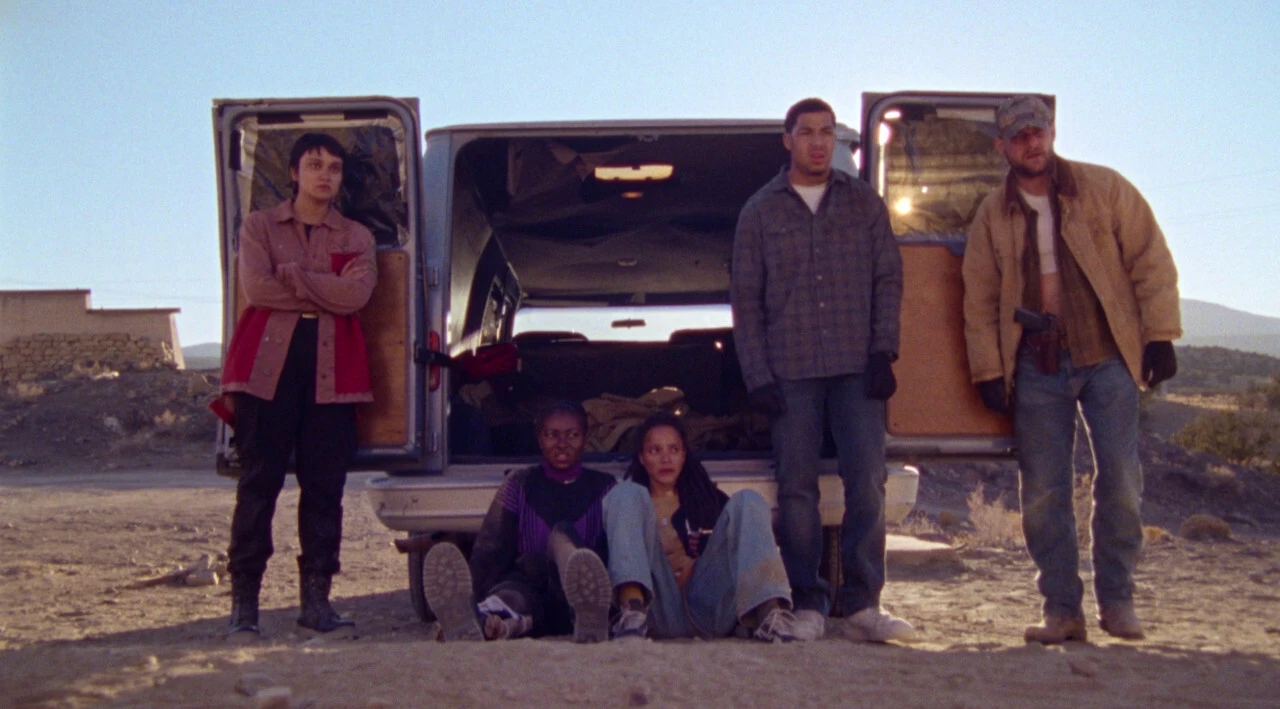
In an incendiary display of environmental activism, a group of young people band together to fight the corporate greed and malpractice of oil companies that are not only destroying land and lives but threatening our future. Protest and legal battles are getting nowhere, so the characters in Daniel Goldhaber’s How to Blow Up a Pipeline decide to speak in a language that governments will finally hear: Sabotage. Like experts planning a heist, the film is a board full of tacks and strings linking all of the characters together who come from across America – emphasizing that the crisis isn’t centered in one place. Climate inaction affects themselves and those they love and they make the decision to attack the thing that is killing them, no matter the cost. It’s a thrilling, electrifying piece that tackles something so incredibly dire. It holds all the incrementing fear for our future, but with a hopefulness, too.
Both excitement and anxiety over such a daring mission are in the air as a diverse group gathers at an abandoned property in the Texas desert. They plan to blow up a pipeline nearby and the film gets right down to it. Some have protested pipelines before, but making homemade explosives to disrupt oil production is all new to them. You wouldn’t know it, though, as they’re meticulous in their planning. They’re intelligent and determined; tension rises like a spark on a fuse. It’s a dangerous endeavor, and they know it. Sweat covers their brow as they try not to blow themselves up. But mistakes are made and accidents happen, elevating the suspense and stakes.
Each character has reasons why they hate the oil industry. The film cuts to scenes that explore each character’s stories and how they are brought together. Daniel Garber’s editing stands out, as these cuts away from the main story are done at the perfect moments and act like a cliffhanger to keep you on the edge of your seat. The flashbacks are also the perfect length, giving us enough exposition without taking us out of the action for too long. This achieves in making events more significant and hard-hitting. We learn that Xochitl (Ariela Barer) and Theo (Sasha Lane) have seen and experienced the health problems that result from oil refineries being built next to residential communities. Michael (Forrest Goodluck) is angry at watching no one do anything about the oil industry pushing onto his Indigenous reserve. Dwayne (Jake Weary), a husband and father of a newborn, has his livelihood destroyed when he’s kicked off his land to make room for a pipeline. Each of the talented cast members brings depth to their characters in their lived-in portrayals of people truly broken by a system that’s out to destroy them. Despite their actions, they make it impossible for the audience not to root for them. However, there are a couple of characters whose purpose in the story is questioned throughout most of the film, as they are portrayed as shit-disturbers who don’t contribute very much and add unnecessary drama under the weight of everything else. Luckily, though, the film has twists up its sleeve that lead to forgiveness of any gripes.
The story seems pretty straightforward but the screenplay crafted by Ariela Barer, Jordan Sjol, and Daniel Goldhaber, based on the book of the same name by Andreas Malm, has a complexity that gets the audience thinking of the moral dilemmas that result from such activism. Through the character of Alisha (Jayme Lawson), we are made to reflect on how scaring rich oil companies in this way would just end up sinking the rest of us deeper into debt with high oil prices. But if we don’t take action, we’ll just end up choking on hot air. The law doesn’t punish those who should be, so what are we supposed to do? With all these questions, How to Blow Up a Pipeline becomes a radical exploration of the climate crisis by daring its audience to accept that we might be fucked and there will be consequences to fighting back but to also realize we aren’t as powerless as we maybe thought.



